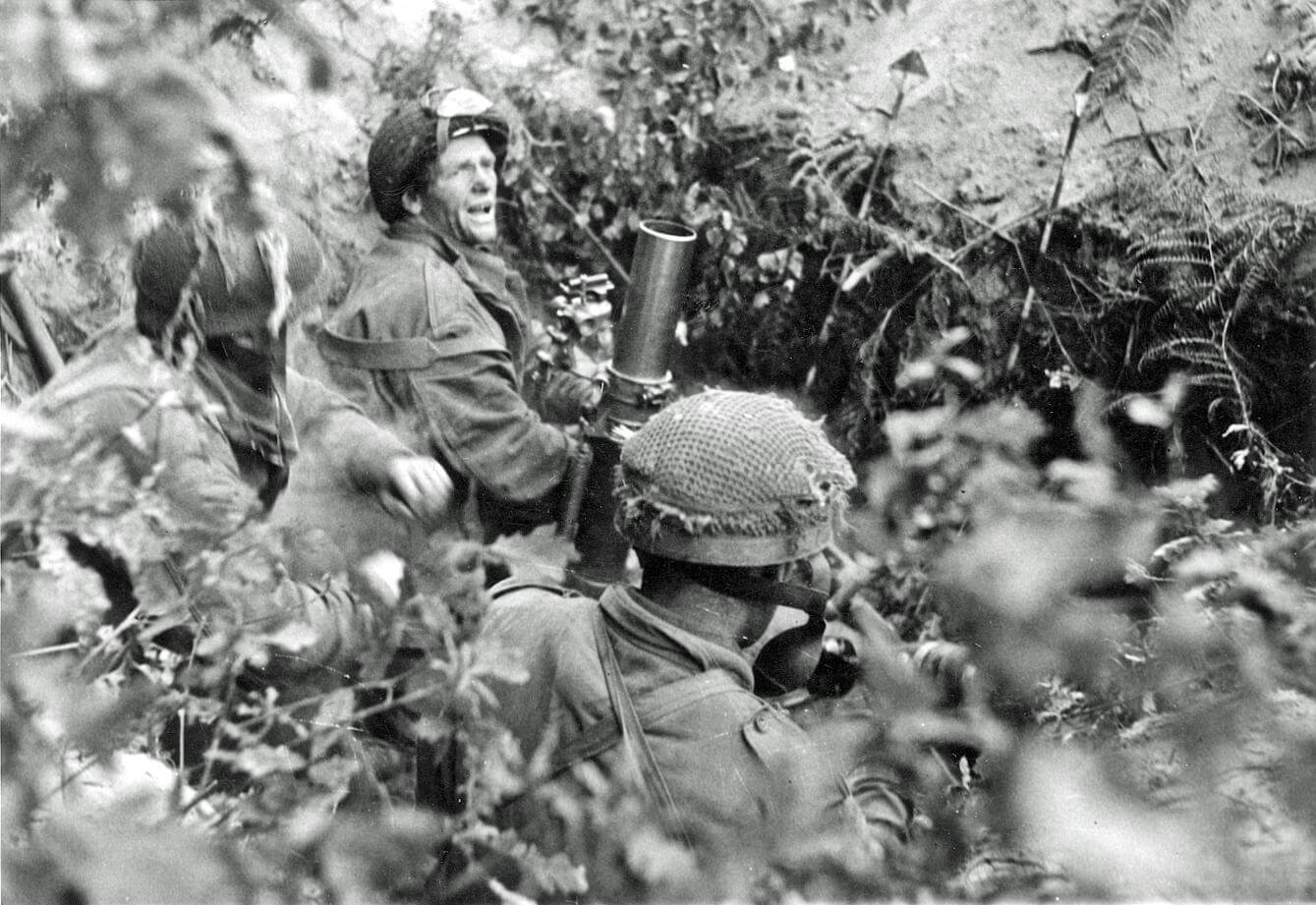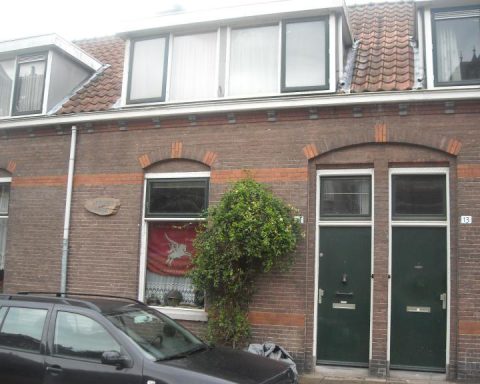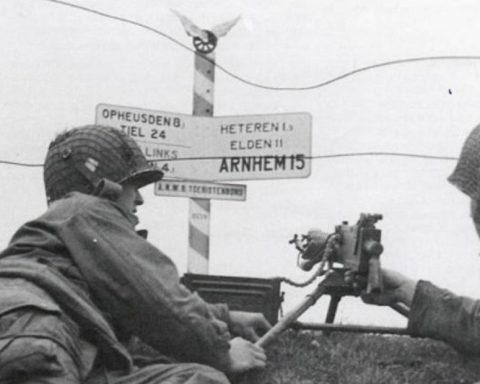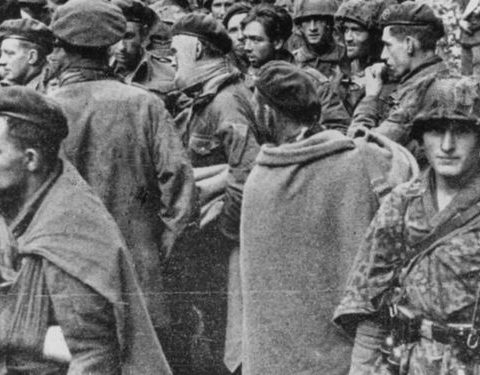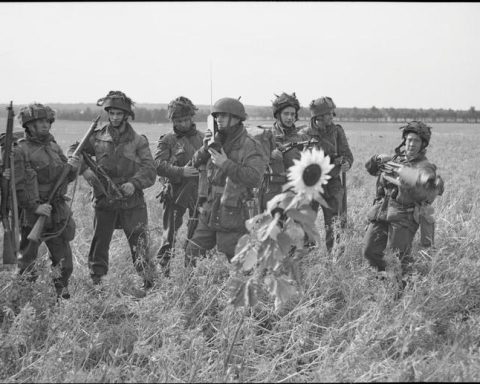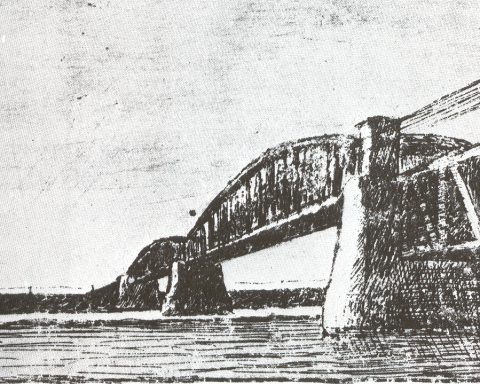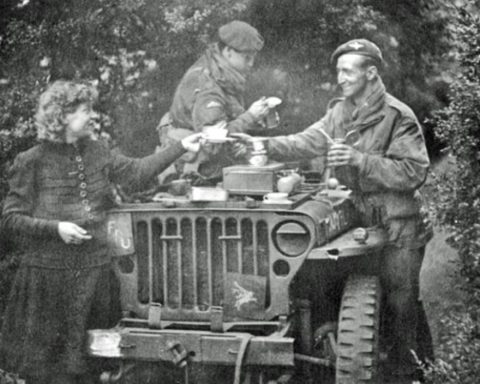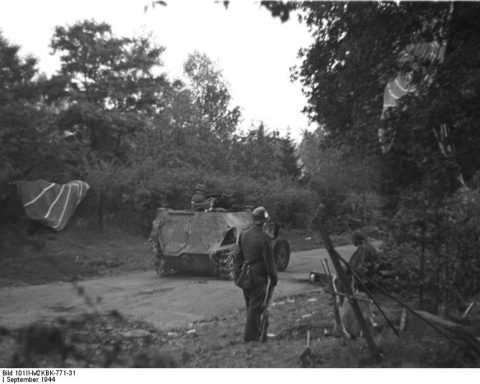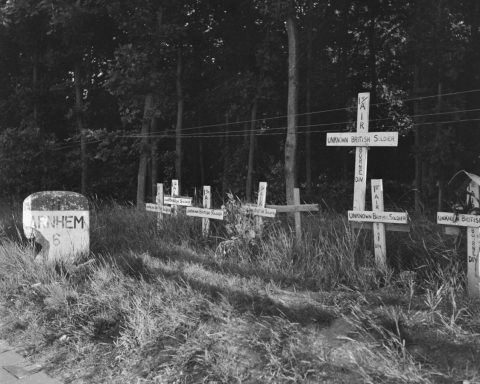On the morning of Friday, September 22, General Urquhart realized that his troops would not last much longer against the immense German pressure on the perimeter positions in Oosterbeek.
In the plans for Operation Market Garden, the 1st British Airborne Division would be relieved after 48 hours in Arnhem by the ground troops advancing from it. Meanwhile, Market Garden had already been going on for five days and the ground troops were still stuck at Lent on the north bank of the Waal.
The British had already held out for three days longer than intended, while the Germans bombarded the British positions with tanks, artillery and a superior force of soldiers. Of the almost 12,000 soldiers of the 1st British Airborne Division, almost 4,000 soldiers were still able to fight at that time. The rest had been killed, wounded or taken prisoner by the Germans.
According to Urquhart, the army leadership of the ground troops had no idea how serious the situation in Oosterbeek actually was. That is why Urquhart sent his chief of staff, Charles Mackenzie, across the Rhine south that morning to relay a cry for help to XXX Corps.
Mackenzie had to clarify the dire situation in Oosterbeek and find out where the relief force was located to come to the aid of the British. In addition, Mackenzie was instructed by Urquhart to pass on the same message to General Boy Browning, preferably in person. Browning was Urquhart’s boss and ultimately responsible for the British and Polish troops in Arnhem and the surrounding area.
Urquhart to Mackenzie: “They need to understand one thing: our division no longer exists. We are just a few individuals holding our own. Explain to them that we are horribly short of personnel, ammunition, food and medical supplies. We also need amphibious vehicles to get the Poles to this side. If supplies don’t arrive tonight, it may already be too late.”
Mackenzie and an engineer officer paddled south in a rubber boat across the Rhine. The two British had hoped that the September fog would prevent the Germans from seeing them, but during the crossing they were shot at by a German machine gun. Nevertheless, the two British reached the south bank unscathed.
There they were met by a Pole and a British liaison officer who had gone off with the Poles. They had brought bicycles for the British so that a little later the four soldiers rode their bicycles to the Polish headquarters.
That morning, the Poles had just made contact with two armored cars from a reconnaissance unit of the ground troops. That morning, the reconnaissance unit had sneaked past the German positions near Oosterhout via Oosterhout.
Mackenzie then managed to relay Urquhart’s message to the chief of staff of XXX Corps via the radios in one of the armored cars. He replied that everything would be done to provide what was absolutely necessary.
Now that it seemed that the arrival of the Allied reconnaissance unit would quickly clear the area between Nijmegen and the Poles near Driel of German troops, Mackenzie stayed with the Poles. As soon as it was possible, Mackenzie would go to General Browning’s headquarters in Nijmegen to personally deliver Urquhart’s message.
Due to the inadequate radio connections with the British in Oosterbeek, General Browning had a poor picture of the situation in Oosterbeek. Five days after the start of Operation Market Garden, it was clear to everyone that the operation was not going as hoped.
The commander of the 52nd Lowland Airborne Division had therefore offered himself to General Browning to send a complete unit of gliders to assist the British in Oosterbeek.
Browning replied: “Thank you for your message, but offer not, repeat: not, necessary because the situation is better than you think. We would like to carry out the landings as already planned, including Poland. Plan to fly to Deelen airport as soon as the situation allows.”
In the original plans, after Arnhem had been relieved by the ground troops, Deelen airport north of Arnhem would be occupied.
It is bizarre that Browning, as ultimately responsible for the Airborne Division in Oosterbeek, seemed to have no idea of the real situation of his troops.
Meanwhile, on Friday, September 22, the advance of the ground troops of XXX Corps did not make much progress. Only at the end of the afternoon did more Allied units make contact with the Poles near Driel.
Urquhart in his autobiography: “And so we were left alone, ignorant of the disappointing reports south of the river. We still held out to keep that absolutely necessary bridgehead open for Monty’s thrust across the North German plain. The 1st Airborne Division had to pay dearly.”

